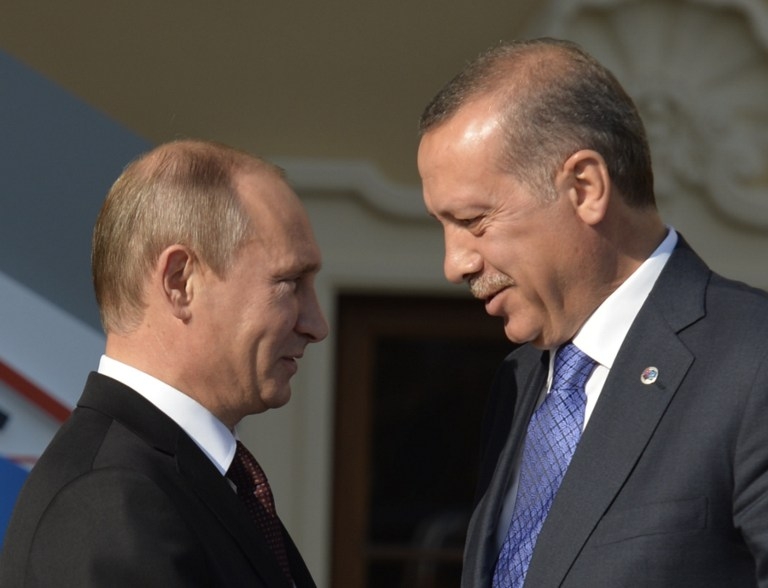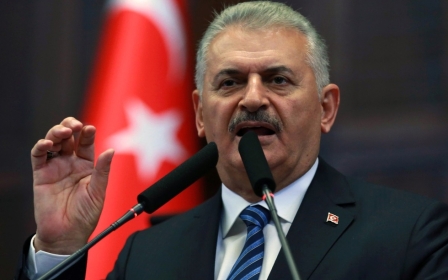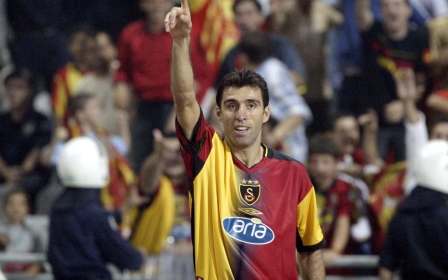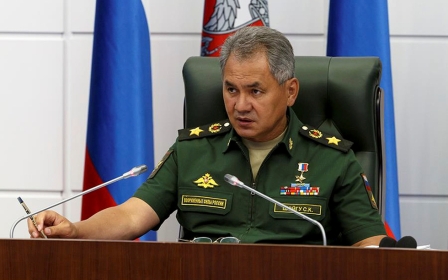Turkey in the middle of a US-Russian tug-of-war

After much anticipation, Turkey’s president finally paid his Russian counterpart a visit in Saint Petersburg last week, a move seen as overwhelmingly positive by both sides.
Both countries are determined to improve their bilateral relations to an unprecedented level after months of freeze and decline after a Russian fighter jet was shot down in Turkey last November.
The visit was scheduled before the 15 July failed coup attempt in Turkey and followed a series of positive diplomatic gestures, including Moscow giving permission for Turkish warplanes to fly into Russian airspace and public congratulations from Erdogan on Russia’s National Day.
Soon after his well wishes were welcomed in Russia, Erdogan expressed his regret over the Russian plane’s downing. Russia, in turn, invited Turkey’s minister of foreign affairs for talks which he attended.
Similar to Turkey’s rapprochement with Israel, it’s clear that the Ankara-Moscow detente was on its way before the failed coup attempt, as Turkey attempted more broadly to minimise its number of foes.
The effort has given Turkish-Russian relations a boost, especially given the perception of the US and EU response to the putsch as cold and unsympathetic to the catastrophes that could have followed if it had succeeded.
Mutual interests
Turkey and Russia both have mutual economic interests.
With Russia banning its citizens from flying to Turkey after the Russian plane was shot down, Turkey’s tourism sector took a nosedive with many of its hotels, previously full of Russian tourists, left empty.
Turkey has major construction projects in Russia and, while Russia had stopped the construction of the Akkuyu nuclear power plant it is building in Turkey, that project now appears to be back on track.
Everything now should be business as usual in addition to a hoped-for increase in bilateral trade.
These mutual economic interests obviously open a door to better strategic and security cooperation, namely on Syria.
Turkey’s disappointment with its traditional NATO allies and their efforts - or lack there of - in Syria probably gave the rapprochement an extra push, and the meeting between Erdogan and Putin immediately produced a bilateral committee to coordinate over Syria.
This step will not produce immediate results, but should give room for mutual understanding of each other’s’ interests, and contribute to a long-term solution to end the conflict.
Russia may need to offer compromises to Turkey in the future regarding Syria, especially if it is able to draw Turkey away from NATO. Russia might, for example, insist that the Assad remains during a political transition period. Obviously, Turkey too will have to offer compromises for a solution.
It is no wonder then that the Iran’s minister of foreign affairs rushed to Turkey to boost relations in the wake of the Turkey-Russia reset.
His visit wasn’t well received by hardliners in Iran, especially the Revolutionary Guards Corps. Nonetheless, it shows that Iran is worried that what transpired between the Turks and the Russians may eventually compromise Iran's position in Syria.
NATO and its members, too, quickly commented on the Turkey-Russia rapprochement, reiterating the importance of Turkey’s membership of the alliance and hoping its new stance toward Russia would not compromise its loyalty to NATO.
US Secretary of State John Kerry and Vice President Joe Biden both have upcoming Turkey visits scheduled.
Additionally, an American judiciary team will be sent to Turkey this month for discussions over Fethullah Gulen, whose extradition Turkey requested after sending boxes worth of evidence implicating his orchestration of the coup.
Obviously, the US will be trying to mend its relations with Turkey. After all, Turkey was infuriated by remarks made by US Central Command chief General Joseph Votel and US Director of Intelligence James Clapper complaining about Turkey's arrest of coup plotters who were friends with US generals.
Russian opportunities
Only a day after Putin met with Erdogan, the Russian leader met with members of his security council and discussed rising tensions with Ukraine over Crimea, annexed by Russia in 2014. Moscow also claimed that it foiled an attempted terrorist attack in the Crimea.
Soon after, the Russian Ministry of Defence announced a military drill in the Black Sea, which took place from 11-13 August with more than a dozen warships and helicopters.
Rather than a response to the foiled attack, perhaps the drill was actually in response to the annual NATO military exercises held in the Black Sea just a month ago.
While Turkey in the past has expressed a strong position against the annexation of the Crimea, which is just north of Turkey on the Black Sea, it is unlikely to express any alarm shortly after the rapprochement.
Russia is clearly trying to make the most out of Turkey’s dent with its allies and its open displeasure with the US at the moment.
While Russia wishes to pull Turkey over to its side, Turkey still has vital interests and commitments with its NATO allies. Still, if Russia can pull Turkey towards it, it can expand its influence westwards and perhaps begin to roll NATO back.
Repairing relations
Tensions after the failed coup aside, the US will have to do more than offer its “concern” over the rise of anti-American rhetoric in Turkey. Major disagreements between Turkey and the US over Syria linger.
Apart from making no effort to topple Assad, the US is still arming and helping the Peoples Protection Units (YPG) – the armed wing of the Democratic Union Party (PYD) - in Syria.
As US Republican Senator Lindsey Graham once said: “[The Turkish government] think it is the dumbest idea (arming the YPG) in the world, and I agree with them.”
The YPG is closely aligned with the Kurdistan Workers’ Party (PKK), a terrorist organisation recognised as so by both Washington and Ankara and the EU. Only a few days ago, the YPG was given aerial cover to fight the Islamic State group in Manbij, Syria.
With greater irony, just this weekend, PKK supporters in Brussels - home to both the EU and NATO headquarters - were openly celebrating the anniversary of the group’s first attack on Turkey.
This is in contrast to the shutting down of the representative offices of the Kurdistan Regional Government (of Iraq) in Russia two days before Erdogan’s visit to Moscow as a result of the Iraqi Kurds' “economic crises”.
While Turkey is currently in a position to adjust its foreign policy, it is unlikely to radically shift it.
However, its grievances with its traditional allies and its interests with Russia make it more susceptible to better long-term relations and understandings with Moscow.
The US and NATO are going to have to try harder to win over the trust and confidence of their disgruntled Turkish ally, which has the second largest army in NATO. Is this going to happen? Only time will tell.
- Mustafa Salama is a political analyst, consultant and freelance writer. Salama has extensive experience and an academic background in Middle East Affairs.
The views expressed in this article belong to the author and do not necessarily reflect the editorial policy of Middle East Eye.
Photo: Russia’s President Vladimir Putin welcomes Turkey’s Prime Minister Recep Tayyip Erdogan at the start of the G20 summit in Saint Petersburg in 2013 (AFP)
This article is available in French on Middle East Eye French edition.
Middle East Eye propose une couverture et une analyse indépendantes et incomparables du Moyen-Orient, de l’Afrique du Nord et d’autres régions du monde. Pour en savoir plus sur la reprise de ce contenu et les frais qui s’appliquent, veuillez remplir ce formulaire [en anglais]. Pour en savoir plus sur MEE, cliquez ici [en anglais].





